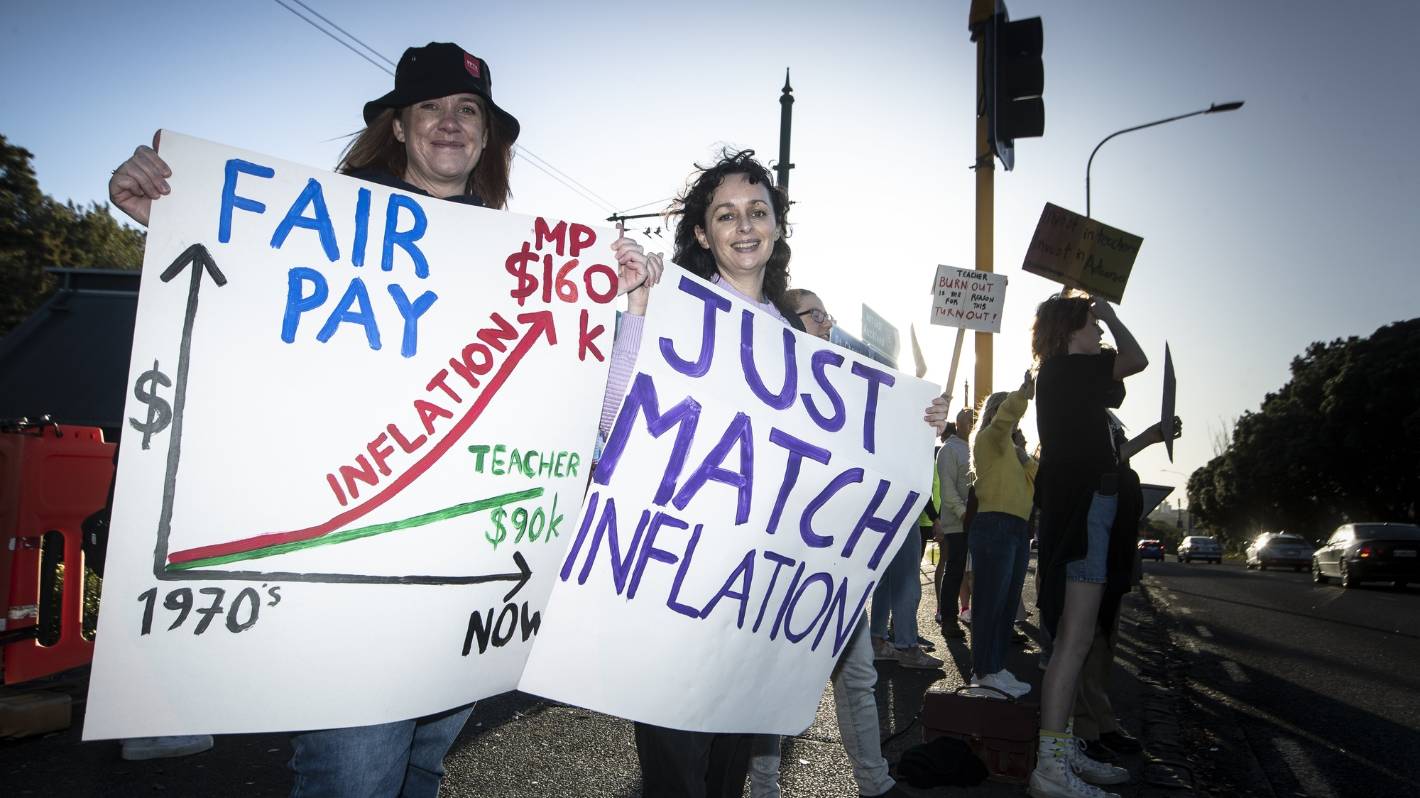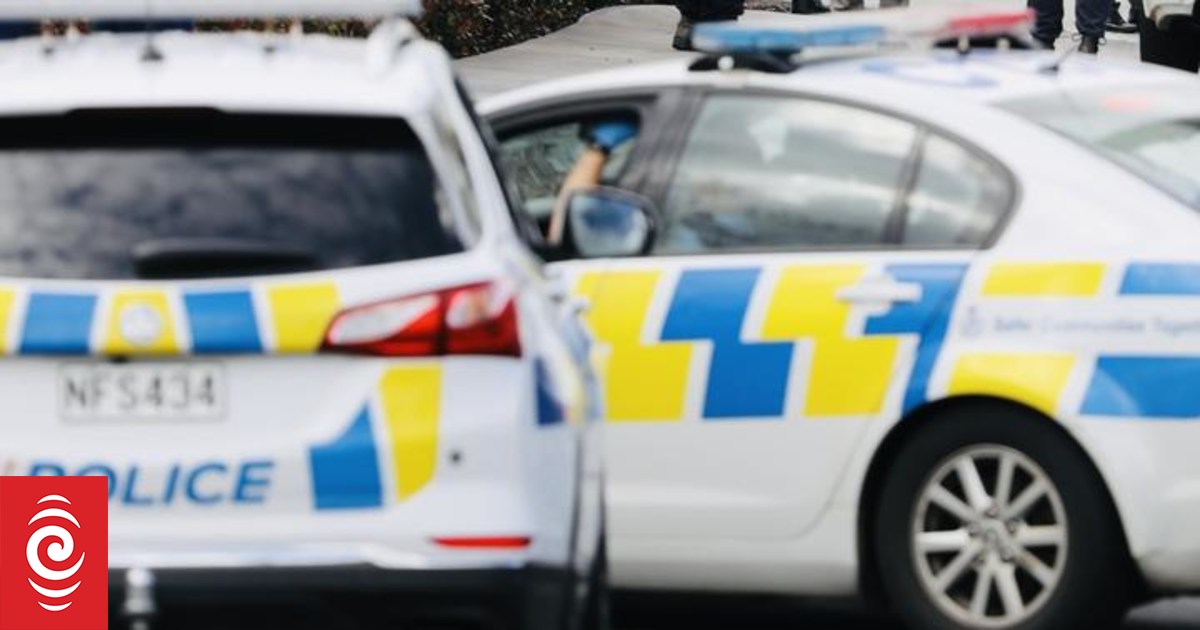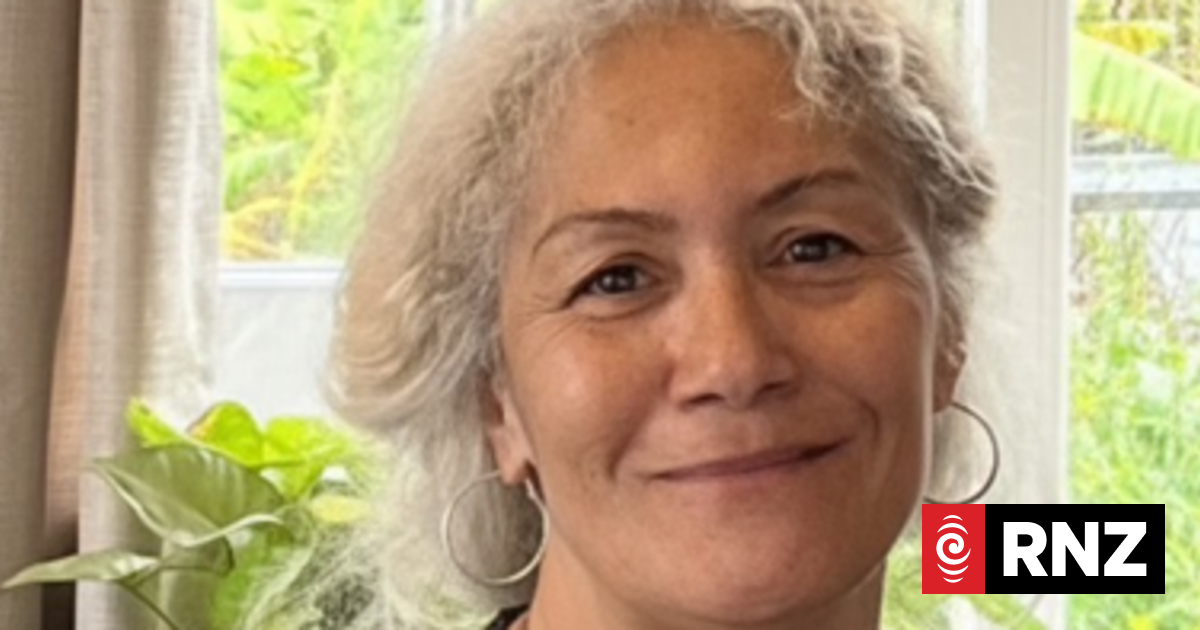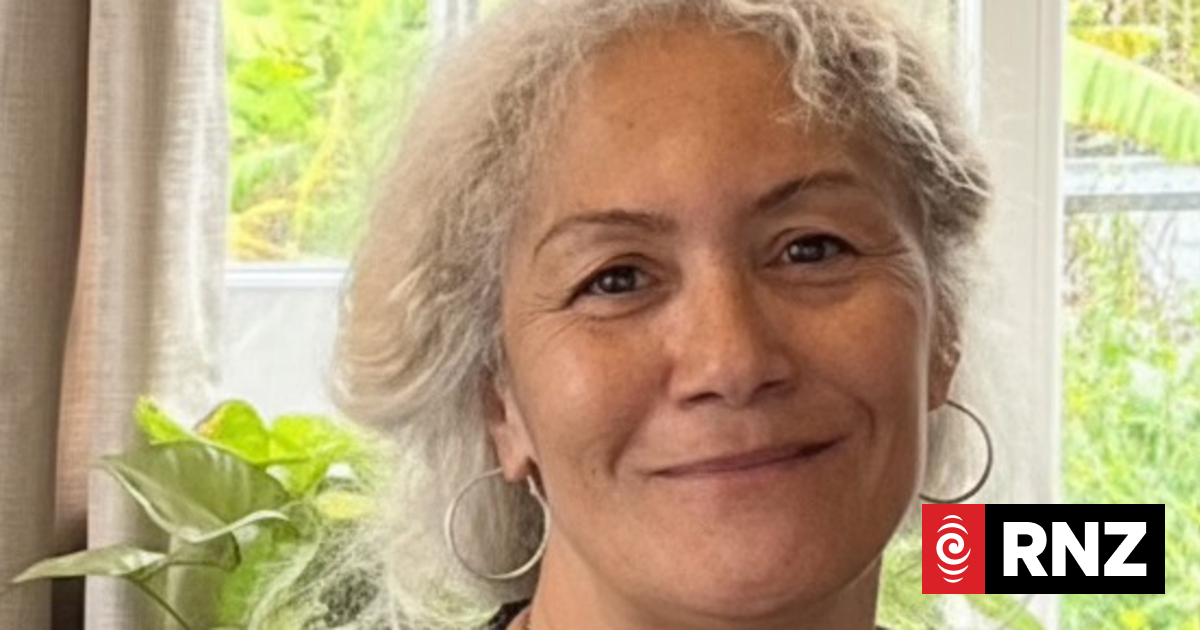Chris McKeen/Stuff
Secondary school and area school teachers across the North Island will be striking on Thursday.
Secondary school and area school teachers from the Central Plateau to the top of the North Island will be striking for better pay on Thursday.
Vaughan Couillault, head of the Secondary Principals’ Association and Papatoetoe High School principal, said many schools will have closed their doors to cope.
Has your school been affected by the teacher strike? Email aucklandnewsroom@stuff.co.nz
It’s the largest of the teachers’ three-day rolling regional strikes that started in the South Island on Tuesday and travelled up towards Northland.
Waikato, Bay of Plenty, Western Bay of Plenty, Central Plateau, Hauraki, Coromandel, East Coast, Auckland and Northland teachers will all be striking on Thursday.
READ MORE:
* Everything you need to know about the teachers’ strike
* Angry, frustrated Southland teachers strike for ‘fair’ pay
* Principals back teachers’ demands for better pay and conditions as teacher shortage worsens
Auckland intermediate school teacher Allie Hemmings said she’s striking because she’s seen too many teachers jump ship for better pay.
“I’m getting targeted ads on my Facebook feed to move to Australia, and it does look enticing, but I want to stay here,” she said.
The teaching profession is facing a dire staffing shortage, with many teachers going into retirement and leaving the profession entirely.
Around one-third of advertised jobs last year could not be filled.
Hemmings said it’s not just about pay. Amid Covid and severe weather events, she’s also had to put more time into caring for students’ wellbeing.
Gabrielle McCulloch/Stuff
Auckland intermediate school teacher Allie Hemmings said she’s receiving targeted adverts to teach in Australia.
“There’s an 11-year-old coming to school with huge anxiety like I’ve never seen. It’s an additional workload for teachers to make sure that their kids have someone to talk to.
“There’s a huge sense of responsibility to do well by our kids. It’s not just teaching conditions that need to be better, it’s learning conditions as well,” she said.
Auckland teacher and PPTA regional chair Paul Stevens said teachers are feeling tired of facing the same situation “again and again”.
“We’re seeing colleges leave. More and more teachers are saying they can’t keep doing it. The work is getting harder, and it feels like the pay is less.
“We want to have a thriving passionate work force of teachers. There’s so much about the work that is amazing. But when you don’t feel valued, teachers start to leave,” Stevens said.
Robyn Edie/Stuff
A group of mostly Southland Girls High school teachers gather to protest in Southland on Tuesday morning.
Papatoetoe High School is closed for teaching on Thursday but has remained open to supervise students who cannot stay home.
The continued interruption for students has been frustrating, principal Vaughan Couillault said.
“Every day students aren’t in the classroom is a day lost,” he said. “If you throw in areas that have been affected by the cyclone and storms, that’s a lot of time.”
Secondary school teachers will also be holding a year level strike, where teachers across New Zealand refuse to take year 13 classes.
Area school teachers are covered under NZEI Te Riu Roa, while striking secondary school teachers are a part of the PPTA.
Both unions are asking for salary increases to match inflation and more guidance staff to work with an increasing number of students who are struggling with mental health and societal issues.
The Employment Relations Authority has tried to step in to help the 10-month pay agreement impasse between the PPTA and the Government, but negotiations are still at a standstill.
Ministry of Education employment relations manager Mark Williamson said the ministry is “disappointed” the unions have not paused strike action after renewed offers.
“Our offer [to the PPTA] on the first step on the scale has increased to $58,505 (13.92%) from December 2024, as opposed to $57,358 (11.68%) in our October offer,” Williamson said.
“In our new offer we have also agreed to meet the $512 certification costs of beginning teachers progressing to full registration over the term of the agreement.”
The Ministry has also included pastoral care and cultural allowances for schools to give teachers more time away from the classroom to care for students.
”We have made, and continue to make, extensive efforts to resolve bargaining, including seeking mediation,” Williamson said.




